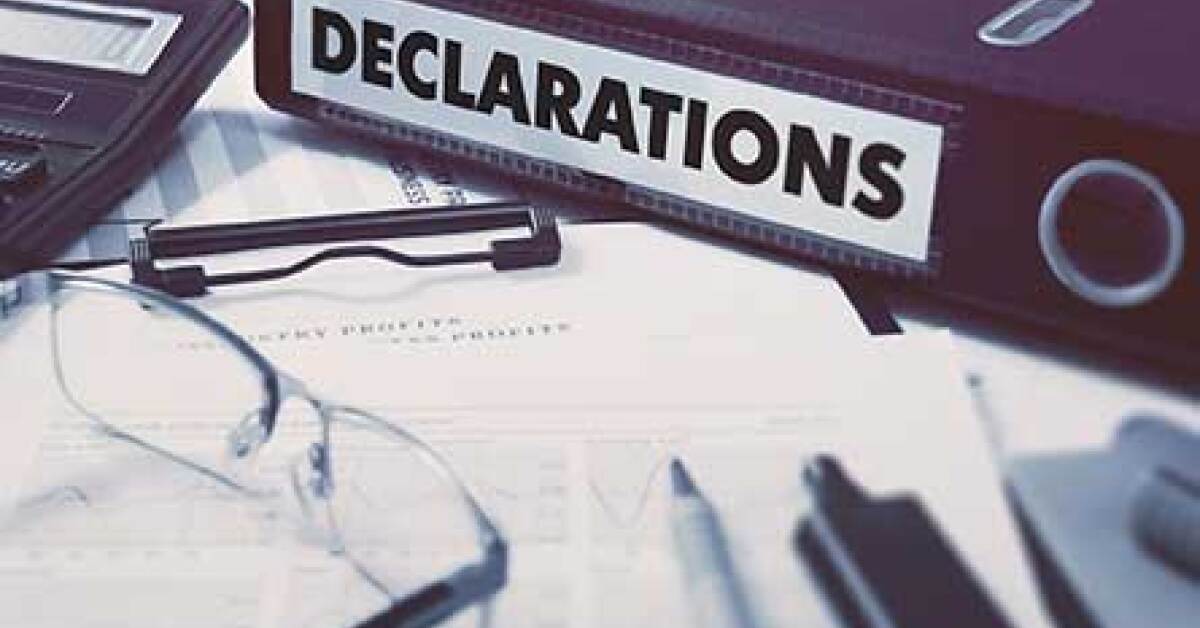Common Uses of Statutory Declarations

Understanding Statutory Declarations in the UK
A statutory declaration is a legal document used in the UK to affirm that a particular statement is true. It is commonly used for name changes, confirming marital status, and business-related matters such as declarations of solvency. Governed by the Statutory Declarations Act 1835, statutory declarations are an essential tool for individuals and businesses needing to confirm facts without going to court.
This article provides an in-depth look at statutory declarations, their uses, legal requirements, and how to complete one correctly.
What is a Statutory Declaration?
A statutory declaration is a written statement of fact that is formally declared to be true before an authorised witness, such as a solicitor, notary public, or commissioner for oaths. It carries legal weight, and knowingly making a false statement in a statutory declaration is a criminal offence under the Perjury Act 1911.
Common Uses of Statutory Declarations
Statutory declarations are used for various legal, personal, and business purposes, including:
- Name Changes: Used as an alternative to a deed poll for legally changing a name.
- Marital Status Confirmation: Required by some foreign countries when a UK citizen marries abroad.
- Identity Verification: Used when correcting errors in official documents.
- Business and Financial Declarations: Companies use them for declarations of solvency before voluntary liquidation.
- Lost Documents: Used when a person needs to affirm the loss of important documents like share certificates.
- Patent Applications: Inventors use statutory declarations to affirm the originality of their inventions.
Legal Requirements for a Statutory Declaration
For a statutory declaration to be legally valid, it must:
- Be in writing and contain a statement of truth.
- Be signed in the presence of an authorised witness, such as a solicitor.
- Follow the prescribed wording set out in the Statutory Declarations Act 1835.
- Include the full name and address of the declarant.
- Be signed voluntarily and without coercion.
How to Make a Statutory Declaration
Step 1: Drafting the Declaration
The declaration must be written in a formal structure, typically beginning with:
"I, [Your Full Name], of [Your Address], do solemnly and sincerely declare that…"
The declaration should clearly state the facts being affirmed and conclude with:
"…and I make this solemn declaration conscientiously believing the same to be true, and by virtue of the provisions of the Statutory Declarations Act 1835."
Step 2: Finding a Solicitor or Commissioner for Oaths
You must sign the declaration in front of an authorised witness, such as:
- A solicitor
- A notary public
- A commissioner for oaths
The solicitor does not provide legal advice on the content of the declaration; they merely witness and authenticate it.
Step 3: Signing the Declaration
During the meeting:
- You will read out the declaration.
- You will sign the document in the solicitor’s presence.
- The solicitor will sign and stamp the document, making it legally valid.
Many solicitors now offer video conferencing for witnessing statutory declarations, making the process more convenient.
Step 4: Submitting the Declaration
Once signed and witnessed, the statutory declaration is complete. It may need to be sent to a relevant authority, such as the passport office, a financial institution, or a court, depending on its purpose.
Cost of Making a Statutory Declaration
The cost of making a statutory declaration varies but typically includes:
- Solicitor’s Fee: Around £5 to £10 for a basic statutory declaration.
- Additional Fees: Some services charge up to £151 (including VAT) for video conference witnessing and expedited services.
Legal Implications and Consequences
- False Declarations: Knowingly making a false declaration is punishable under the Perjury Act 1911, leading to fines or imprisonment.
- Fraudulent Use: Using a statutory declaration to commit fraud (e.g., faking identity documents) is a criminal offence.
- Non-Compliance: A poorly drafted or improperly witnessed declaration may be invalid and rejected by authorities.
Conclusion
A statutory declaration is a powerful legal tool that can be used for a variety of personal and business purposes in the UK. By following the correct process, ensuring proper wording, and having it witnessed by an authorised professional, you can create a legally binding document. If you are unsure about the process, consulting a solicitor can help ensure compliance with legal requirements


